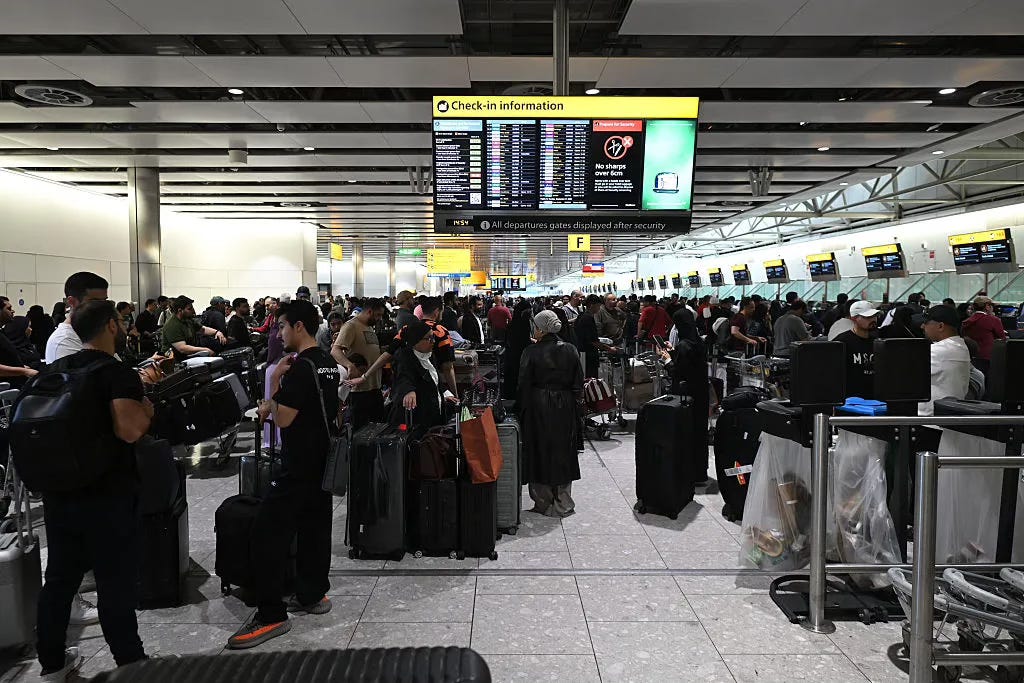On Sunday, Russia said that it had fired a Zircon (Tsirkon) hypersonic cruise missile at a target in the Barents Sea and that Sukhoi Su-34 supersonic fighter-bombers had carried out strikes as part of joint military exercises with Belarus. Russia's "Zapad", or West, joint strategic exercise with Belarus began on September 12, aiming to enhance military command and coordination in the event of an attack on either Russia or Belarus, the Russian Defence Ministry said.
On Monday, South Korea, Japan and the US initiated a military exercise dubbed “Freedom Edge,” aimed at strengthening the countries’ combined operational capabilities in the sea, air and cyberspace. The exercise off South Korea’s southern Jeju Island ran until Friday and was the most advanced demonstration of trilateral defence cooperation to date.
On Tuesday, Israel launched its long-awaited ground offensive. The assault began with a heavy bombardment of Gaza City. An Israeli military official said they expect to fight between 2,000 to 3,000 militants inside Gaza City. Israeli and Arab officials estimate Hamas has tens of thousands of fighters within its ranks, though many are fresh recruits with little training.
On Tuesday, Ships from China and the Philippines were reported to have collided near the disputed Scarborough Shoal in the South China Sea, amid escalating maritime tensions between the two countries. China claimed that the Philippines had rammed one of its coastguard vessels in the area, while the Philippines said it was Chinese aggression.
On Wednesday, Donald Trump began his second state visit to the UK. Protesters attempted to disrupt the visit by projecting images of the Trumps and Jeffrey Epstein together on the walls of Windsor Castle, but were arrested.
On Wednesday, China banned tech companies in the country from buying Nvidia chips. The Cyberspace Administration of China (CAC) told companies, including ByteDance and Alibaba, this week to end their testing and orders of the RTX Pro 6000D, Nvidia’s tailor-made product for the country. Nvidia shares were down.
On Wednesday, the EU proposed the suspension of preferential tariff treatment on more than one-third of Israeli goods exported to the bloc and expanded its sanctions on officials in response to the crisis in Gaza. They said the measure would hit roughly 5.8 billion euros ($6.88 billion) of Israel’s exports to the bloc and result in an estimated additional 227 million euros of duties to be paid per year.
On Wednesday, Lithuanian prosecutors announced they had disrupted a Russian mail bomb plot across Europe. Homemade incendiary devices were to be concealed in massage cushions and cosmetic tubes. The suspects packed the parcels with thermite, a highly flammable substance used for industrial and military purposes. Among the suspects are nationals of Russia, Lithuania, Latvia, Estonia and Ukraine.
On Thursday, French protesters again staged nationwide protests involving hundreds of thousands. Schools and public transport were shut down. The protesters aimed to put pressure on the new prime minister, Sébastien Lecornu, to rethink budget cuts and act on wages, pensions and public services.
On Thursday, Donald Trump and Keir Starmer held a press conference and signing ceremony for a technology partnership deal worth billions. Among the announced American investments in the UK are a joint Nvidia-OpenAI investment in London-based startup Nscale worth $680 million, and a pledge by Microsoft to invest $30 billion in the UK by 2028.
On Friday, it was reported that a U.S. delegation had been in talks with the Taliban. The United States is negotiating for the release of American prisoners and for potential investment and access to critical minerals. The Trump administration is also trying to find a way to get back the Bagram airbase from the Taliban.
On Saturday, a cyberattack at a provider of check-in and boarding systems disrupted operations at several major European airports, including London’s Heathrow, the continent’s busiest, causing flight delays and cancellations.
On Sunday, the U.K., Australia and Canada formally recognized a Palestinian state, prompting an angry response from Israel. The moves by the three countries prompted Israeli Prime Minister Benjamin Netanyahu to say that the establishment of a Palestinian state “will not happen,” while Hamas urged the international community to isolate Israel.

